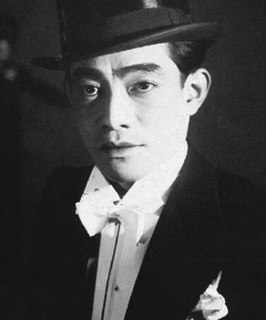| Gen'ichi | |
|---|---|
| Gender | Male |
| Origin | |
| Word/name | Japanese |
| Meaning | Different meanings depending on the kanji used |
Gen'ichi or Genichi (written: 源一, 厳一 or 玄一) is a masculine Japanese given name. Notable people with the name include:
- Genichi Kawakami (川上 源一, 1912–2002), Japanese businessman
- Gen-ichi Koidzumi (小泉 源一, 1883–1953), Japanese botanist
- Genichi Taguchi (田口 玄一, 1924–2012), Japanese engineer and statistician
- Genichi Takahashi (高橋 厳一, born 1980), Japanese footballer
Genichi Kawakami was the president of the Yamaha Corporation from 1950 to 1977, and again from 1980 to 1983. He is often credited with the international success of Yamaha and was also widely influential as a community music educator.

Gen-ichi Koidzumi was a Japanese botanist, author of several papers and monographs on phytogeography including work on roses and Amygdaloideae (Rosaceae), maples (Aceraceae), mulberries, and many other plants. His name is sometimes transliterated as Gen’ichi or Gen-Iti, or as Koizumi.
Genichi Taguchi was an engineer and statistician. From the 1950s onwards, Taguchi developed a methodology for applying statistics to improve the quality of manufactured goods. Taguchi methods have been controversial among some conventional Western statisticians, but others have accepted many of the concepts introduced by him as valid extensions to the body of knowledge.



